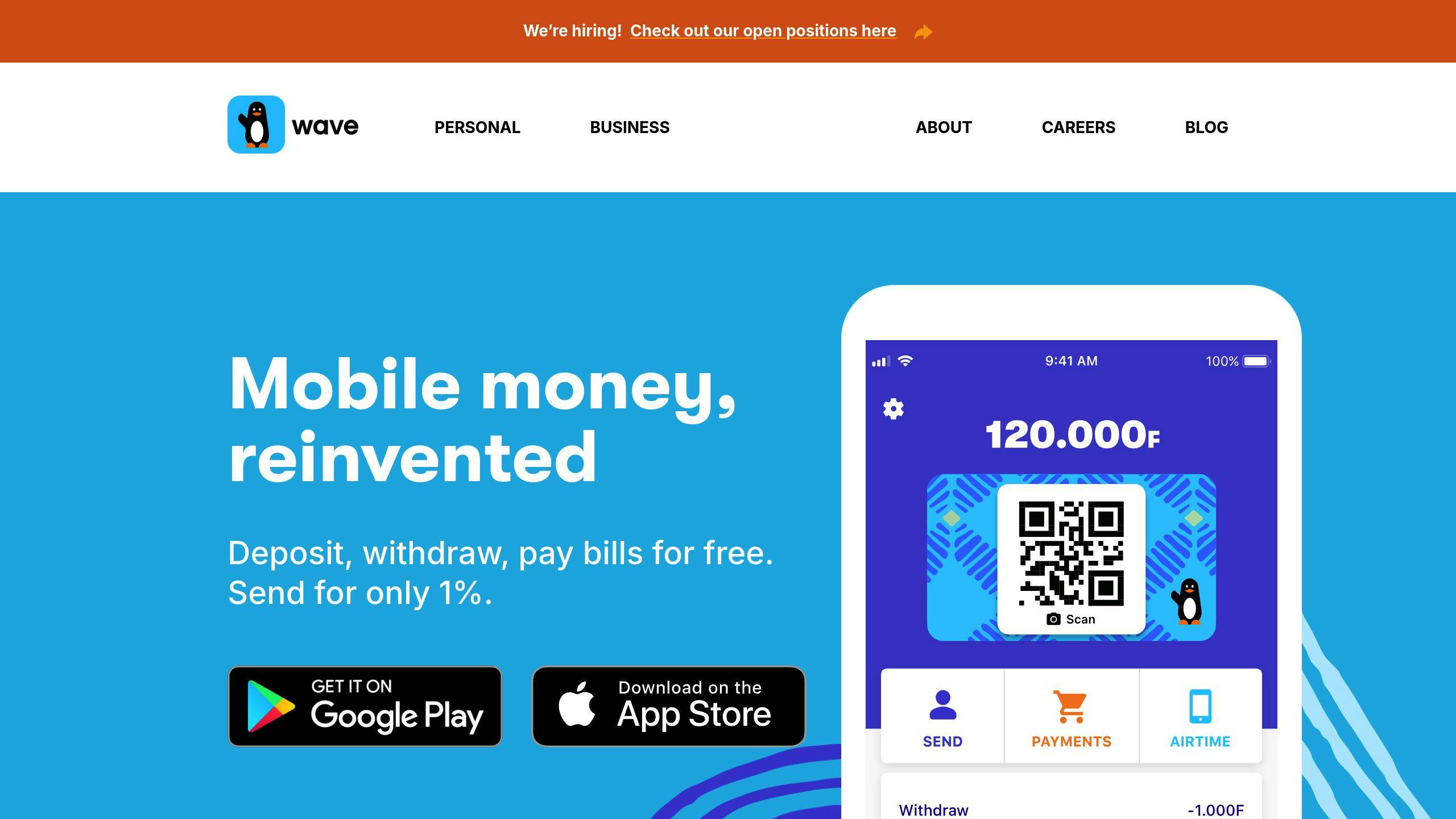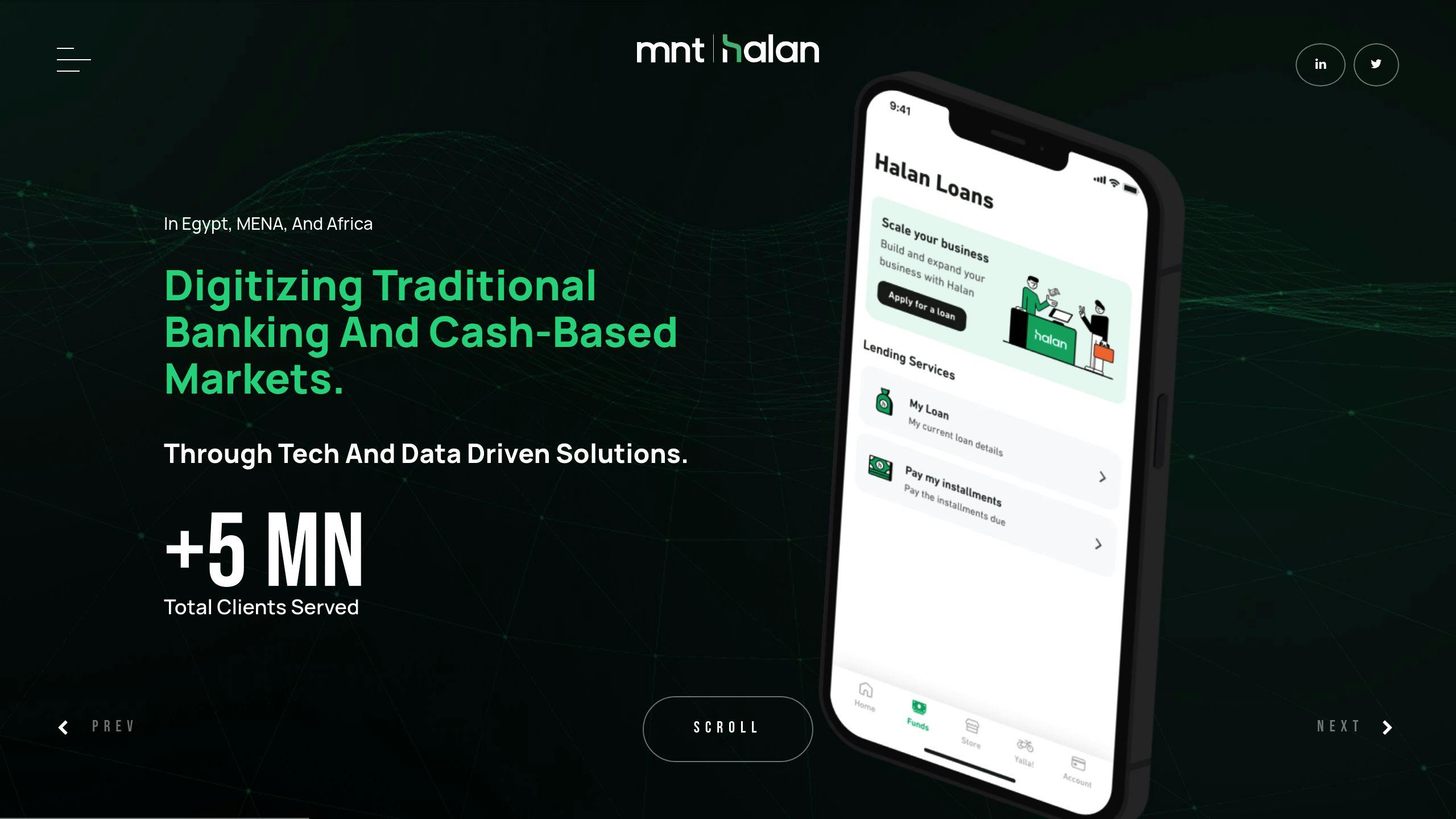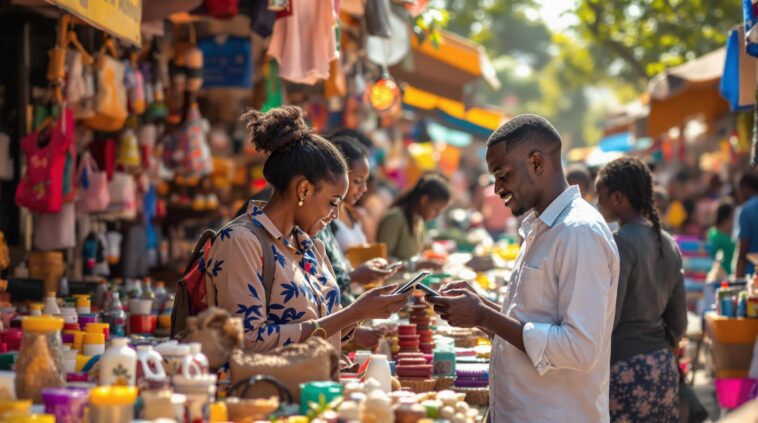Mobile social platforms are transforming African startups by enabling growth through local content, social commerce, and low-data features. With smartphone usage in sub-Saharan Africa at 51% and projected to reach 87% by 2030, platforms like Ayoba, Koo, and TikTok are helping businesses connect with users effectively. Here’s how these platforms are driving change:
- Market Reach: Access to millions of mobile users, even in underserved areas.
- Localized Features: Support for local languages and tailored content.
- Social Commerce: Tools for direct selling, inventory management, and payment integration.
- Data Efficiency: Low-data designs and offline functionality for areas with limited connectivity.
Startups like M-Pesa, Twiga, and Wave Mobile are leveraging these platforms to provide financial services, connect farmers with buyers, and simplify transactions. Partnerships with tech hubs and influencers further amplify their reach, making mobile platforms a key driver of innovation and business growth in Africa.
Features of Mobile Social Platforms Helping African Startups
Local Language and Content Support
Mobile social platforms are changing how African startups engage with diverse audiences by offering support for multiple languages. Ayoba, for instance, provides content in a variety of African languages. Startups leverage this feature to connect with regional users, fostering trust and loyalty.
Similarly, Koo allows businesses to design campaigns tailored to local audiences. This strategy helps startups create deeper bonds with their users while staying aligned with regional cultural norms.
Social Commerce Features
Platforms like Bumpa combine social media with e-commerce tools, making it easier for small businesses to manage sales. This integration simplifies daily tasks and helps drive revenue growth.
| Feature | How It Helps Startups |
|---|---|
| Direct Selling | Lets businesses sell directly through social platforms |
| Inventory Management | Monitors stock and sales in real-time |
| Payment Integration | Supports multiple local payment options |
Low Data Use and Offline Access
With internet access varying widely across Africa, mobile social platforms have adjusted to meet these challenges. Features like compressed media sharing, offline capabilities, and lightweight apps allow startups to connect with users effectively, even in areas with limited connectivity.
These advancements have also supported the growth of mobile financial services. Since 2015, fintech startups have raised over USD 4 billion in funding [4]. This influx of investment has enabled the creation of accessible mobile platforms, bringing financial services to millions who were previously underserved.
Africa’s Digital Disruption: Transforming Marketing with Mobile and Social Media
sbb-itb-dd089af
How African Startups Use Mobile Social Platforms
African startups are tapping into mobile social platforms to connect with users, target specific markets, and grow their businesses.
Building Community and Engagement
Startups across Africa are using platforms like Ayoba and Mwananchi to foster connections with their audiences. These platforms create spaces where users can share experiences and discuss local concerns [1]. For example, Mwananchi facilitates conversations around topics like healthcare and education, addressing specific community needs while building trust and loyalty.
| Engagement Strategy | Business Impact |
|---|---|
| Local Language Content | Builds trust and encourages participation |
| Real-time Updates | Keeps users engaged regularly |
| Community Discussions | Strengthens loyalty and retention |
Targeting Specific Markets
African startups are zeroing in on challenges unique to their regions, such as access to financial services, healthcare, and education. A great example is M-Pesa, which revolutionized financial access for Kenya’s unbanked population by offering mobile-based transactions [3].
Growing Through Partnerships
Partnerships are a key growth driver for African startups. Over 600 tech incubators and accelerators in countries like Nigeria, Kenya, and South Africa provide critical support [2]. These partnerships offer more than technical help – they also open doors to new opportunities:
| Partnership Type | Benefits |
|---|---|
| Platform Integration | Leverages existing user bases |
| Collaborations with Local Influencers | Boosts reach in regional markets |
| Tech Hub Connections | Offers technical and business growth resources |
Platforms such as Vskit and TikTok help startups extend their reach by using influencer-driven content that resonates with local audiences [1]. By working with tech hubs, influencers, and established platforms, these startups gain resources, visibility, and overcome market barriers.
These efforts, combined with creative mobile solutions, have helped many African startups thrive, setting the stage for even more success stories.
Examples of African Startups Using Mobile Social Platforms
African startups are leveraging mobile social platforms to reshape industries and tackle pressing challenges.
Wave Mobile: Simplifying Financial Transactions

Wave Mobile focuses on making financial services accessible and affordable for underserved communities through its mobile money platform. Their approach has made everyday transactions easier and more cost-effective.
| Service Feature | Benefit |
|---|---|
| Cross-border Transfers | Low fees for international money transfers |
| Mobile Wallet | Access to financial services without needing a bank account |
| Digital Payments | Convenient transactions for daily purchases |
By offering services like cross-border transfers, mobile wallets, and digital payments, Wave Mobile has made financial transactions more accessible for users who lack traditional banking options.
MNT-Halan: Expanding Fintech Access

MNT-Halan has redefined financial services with its all-in-one mobile platform, designed for areas with limited access to traditional banking [4].
| Feature | Functionality |
|---|---|
| Digital Lending | Quick access to small loans |
| Mobile Savings | Allows users to save money digitally |
| Payment Solutions | Simplifies daily financial transactions |
Since its launch, MNT-Halan has provided tools like microloans, digital savings, and payment solutions. The fintech sector in Africa has attracted over USD 4 billion in funding since 2015 [4], enabling startups like MNT-Halan and Wave Mobile to expand and serve millions.
These two startups illustrate how mobile-first strategies are not only promoting financial inclusion but also driving business growth across Africa. Their success underscores the potential of mobile platforms to spark innovation and create lasting impact.
Conclusion: Mobile Social Platforms and the Future of African Startups
Key Takeaways
Mobile social platforms are reshaping Africa’s startup ecosystem in a big way. Platforms like Koo, Ayoba, and Bumpa show how focusing on local content, social commerce, and efficient use of data can help startups connect with their audiences and grow quickly.
| Key Factor | Impact on Startups |
|---|---|
| Local Content | Helps startups reach specific markets effectively |
| Social Commerce Features | Simplifies business processes |
| Data-Efficient Design | Makes platforms accessible to more users |
What Lies Ahead
With smartphone usage in Africa expected to hit 87% by 2030 [2], mobile platforms are set to unlock even more opportunities for startups. Closing the gap in internet access will be crucial, and mobile platforms are already making strides with features like offline functionality and data-saving designs.
As startups continue to leverage mobile platforms, they’re laying the groundwork for future advancements. Technologies on the horizon promise to take these efforts even further, including:
- AI-powered platforms offering tailored services
- Mobile banking solutions reaching underserved populations
- Scalable tools that help businesses expand across different platforms
Related posts
- Top 7 EdTech Startups for Digital Skills in Africa
- E-commerce in Africa: 2025 Market Analysis and Trends
- 8 Solutions to Common African E-commerce Challenges
- Top 7 African Tech Hubs Building Communities
 We just launched our WhatsApp channel. Want to get the latest news from the Tech in Africa?
We just launched our WhatsApp channel. Want to get the latest news from the Tech in Africa?


